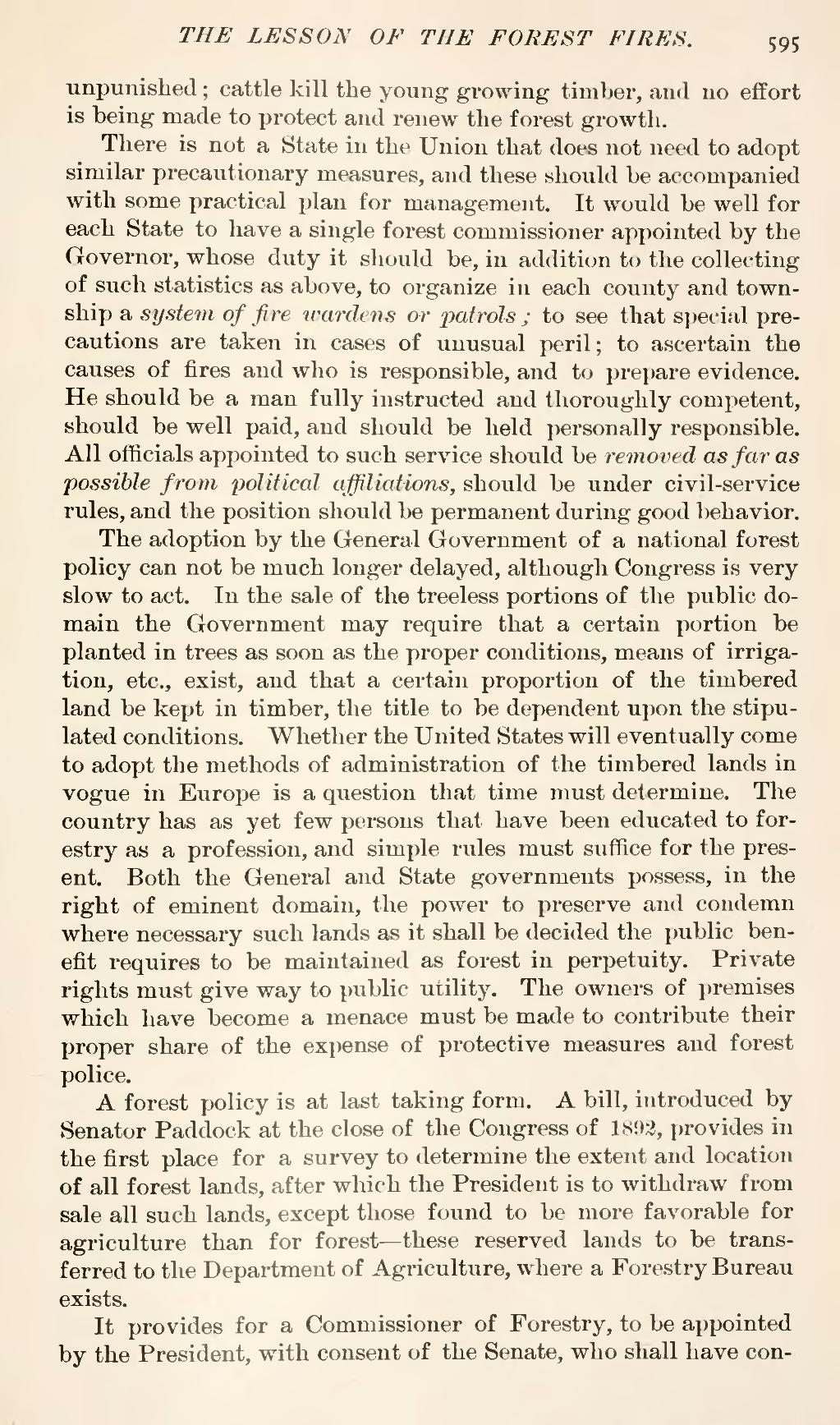unpunished; cattle kill the young growing timber, and no effort is being made to protect and renew the forest growth.
There is not a State in the Union that does not need to adopt similar precautionary measures, and these should be accompanied with some practical plan for management. It would be well for each State to have a single forest commissioner appointed by the Governor, whose duty it should be, in addition to the collecting of such statistics as above, to organize in each county and township a system of fire wardens or patrols; to see that special precautions are taken in cases of unusual peril; to ascertain the causes of fires and who is responsible, and to prepare evidence. He should be a man fully instructed and thoroughly competent, should be well paid, and should be held personally responsible. All officials appointed to such service should be removed as far as possible from political affiliations, should be under civil-service rules, and the position should be permanent during good behavior.
The adoption by the General Government of a national forest policy can not be much longer delayed, although Congress is very slow to act. In the sale of the treeless portions of the public domain the Government may require that a certain portion be planted in trees as soon as the proper conditions, means of irrigation, etc., exist, and that a certain proportion of the timbered land be kept in timber, the title to be dependent upon the stipulated conditions. Whether the United States will eventually come to adopt the methods of administration of the timbered lands in vogue in Europe is a question that time must determine. The country has as yet few persons that have been educated to forestry as a profession, and simple rules must suffice for the present. Both the General and State governments possess, in the right of eminent domain, the power to preserve and condemn where necessary such lands as it shall be decided the public benefit requires to be maintained as forest in perpetuity. Private rights must give way to public utility. The owners of premises which have become a menace must be made to contribute their proper share of the expense of protective measures and forest police.
A forest policy is at last taking form. A bill, introduced by Senator Paddock at the close of the Congress of 1892, provides in the first place for a survey to determine the extent and location of all forest lands, after which the President is to withdraw from sale all such lands, except those found to be more favorable for agriculture than for forest these reserved lands to be transferred to the Department of Agriculture, where a Forestry Bureau exists.
It provides for a Commissioner of Forestry, to be appointed by the President, with consent of the Senate, who shall have con-

